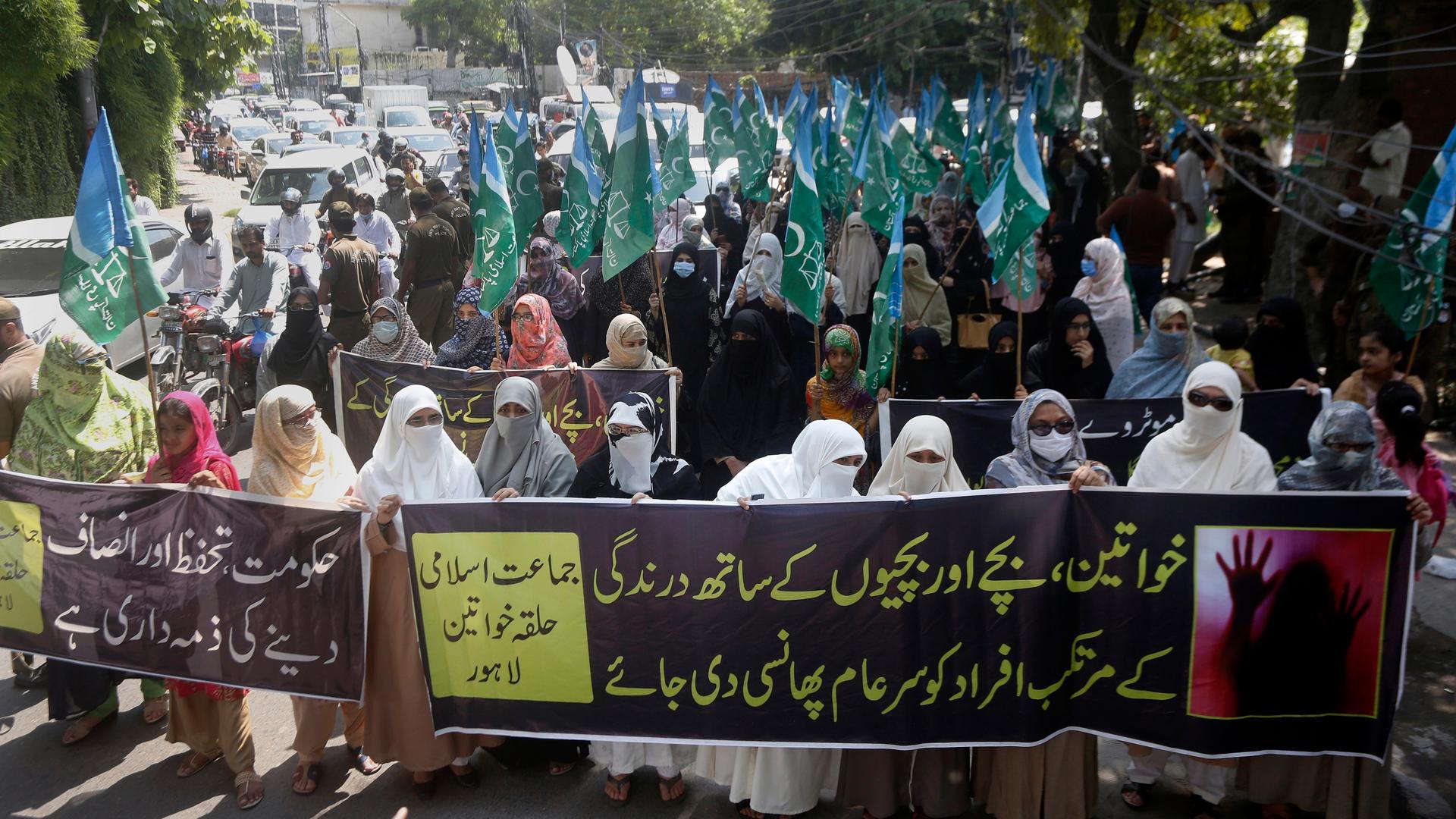
A Pakistani police chief faced a growing backlash Friday after he seemed to blame the victim of an alleged gang rape because she was driving at night without a male companion.
Investigators say the victim left her home with her two children in Lahore and was driving when her car ran out of fuel around 1:30am.
She called a relative and a helpline for the highway police, but before they arrived, two men approached, broke the car’s windows, and dragged the woman and h er children to a field beside the highway, where she was gang raped.
Twelve suspects had been arrested so far, Musarrat Cheema, spokesperson for the government of Punjab province, said on Twitter.
Prime Minister Imran Khan said in a statement on Twitter he was following the case closely and had asked investigators for the “arrest and sentencing of those involved in the incident as soon as possible,” adding that his government would look into how to strengthen laws to deal with an apparent increase in cases involving the rape of women and children.
Lahore police chief Umar Sheikh repeatedly chided the victim for driving without a man at night while speaking to media about the incident, adding that no one in Pakistani society would “allow their sisters and daughters to travel alone so late”.
Sheikh went on to say the victim, a resident of France, probably “mistook that Pakistani society is just as safe” as her home country.
Human rights minister Shireen Mazari said his remarks were unacceptable.
“Nothing can ever rationalise the crime of rape,” she added.
Lawyer and woman’s rights activist Khadija Siddiqi told AFP that Sheikh’s comments were part of an unfortunate and “very rampant” culture of victim blaming in Pakistan.
READ MORE: After a young girl’s murder, Pakistan seethes with fury
Protests were planned in cities across Pakistan on Friday, and Sheikh’s comments sparked demands for his resignation.
“We are angry, we demand his removal and we demand his apology,” said Nighat Dad, a women’s rights activist and one of the organisers of an annual women’s rights march in Lahore.
Much of conservative Pakistan lives under a patriarchal code of “honour” that systematises the oppression of women by preventing them from, for example, choosing their own husband or working outside the home.
Activists have denounced pervasive, sometimes deadly violence by men — usually male relatives — against women who break those taboos.
Around a thousand Pakistani women are murdered in honour killings each year — in which the victim, normally a woman, is killed by a relative for bringing shame on the family.










Discussion about this post